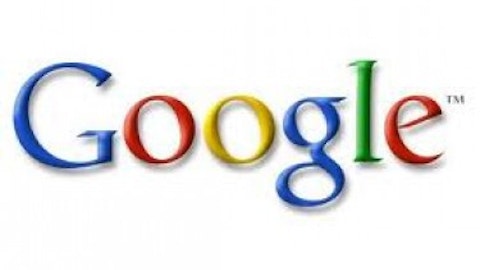In the traditional PC world, Microsoft Corporation (NASDAQ:MSFT)’s business model has been simple: Sell a license to the operating system for one-time flat fee, possibly sell a copy of Office, and that was the end of the revenue stream for the company.
However, the realities of the mobile world turned this business model right on its head. In one corner, we have Apple Inc. (NASDAQ:AAPL), which makes billions by selling the software ecosystem in an attractive hardware solution. In addition to this high-margin up-front device purchase, Apple Inc. (NASDAQ:AAPL) gets an attractive cut of the revenues generated from application sales. Google Inc (NASDAQ:GOOG), on the other hand, offers its Android operating system for free (and it’s open source, too, meaning device vendors can customize it at will) and makes its profit from application sales as well as ad revenue generated from immersing consumers in its numerous services (such as Google Inc (NASDAQ:GOOG) Maps, GMail, and so on).

Microsoft Corporation (NASDAQ:MSFT) has some very difficult decisions to make, particularly in trying to find its identity in this mobile world, but the acquisition of Nokia Corporation (ADR) (NYSE:NOK)‘s gives investors a glimpse into the choices that will drive the company’s longer-term strategy.
Does Microsoft play Google, or does it play Apple?
As far as the traditional PC space goes, Microsoft Corporation (NASDAQ:MSFT)’s business model and market share are likely to remain safe, although there’s no telling when/if the underlying secular picture for PCs will bottom in the near future. In the mobile devices space, however, it’s an entirely different picture. Windows 8 tablets based on Intel’s Atom Z2760 have managed to gain mid-single digit market share, although the less functional Windows RT based devices (such as Microsoft’s own Surface RT, and a number of devices from partners such as ASUS and Lenovo) have failed to gain material traction . While significantly better Windows 8 designs based on Intel’s upcoming “Bay Trail” chips, as well as much-improved Windows RT designs from Microsoft, Nokia Corporation (ADR) (NYSE:NOK), and perhaps a few others are coming, it is unclear whether Microsoft and its partners can take material share in tablets.
In smartphones, while Samsung, HTC, and Huawei have made lukewarm attempts to sell devices based on Microsoft Corporation (NASDAQ:MSFT)’s Windows Phone 8, only Nokia Corporation (ADR) (NYSE:NOK) has really stood out as a viable champion of the platform, capturing 81% of all Windows Phone devices sold in the most recent quarter. However, despite being the “best” Windows Phone vendor, it still failed to sell enough smartphones to stop the bottom-line bleeding from its handset division.
So, Microsoft Corporation (NASDAQ:MSFT) really had two choices here. They can either depend on financially frail Nokia Corporation (ADR) (NYSE:NOK) to essentially lead the entirety of Microsoft’s smartphone push, or simply consume the handset assets of the only vendor seeing meaningful sales of Windows Phone powered devices and keep the revenue and profit from each device sold for itself in true Apple Inc. (NASDAQ:AAPL) fashion. With Microsoft’s strong brand and financial wherewithal to undertake the growing pains of driving a steep ramp of a devices business, it apparently decided to unburden Nokia from its loss-generating handset division and try to make it work. In short, it seems that Microsoft is going to try to be like Apple Inc. (NASDAQ:AAPL).
Can it work?
From a long-term perspective, Microsoft’s push to become a fully integrated device vendor is an interesting one. On one hand, Microsoft’s entire PC franchise has been built through strong partnerships with OEM partners, but on the other hand, in a world with “free” Android, it will be difficult to compete in the more price sensitive markets. My view is that as far as smartphones go, Microsoft will simply go at it alone with the Nokia Corporation (ADR) (NYSE:NOK) assets backed by the financial might of the company. Only time will tell whether Microsoft will gain meaningful share in the smartphone space, but if it can do it, then the upside for investors could be enormous as Microsoft would not only earn the device margin, but a cut from all of the application sales, as well as a continued push of its various services such as Bing.
But what of Nokia? Well, with an extra $7.2 billion in hand, complete ownership of the Nokia Solutions and Networks (formerly the Nokia-Siemens Network), and no more handset division to drag down profitability, I think Nokia becomes a lot more interesting, particularly since during 2012, NSN generated over $1 billion in operating income. I expect that Nokia shareholders will see the dividend reinstated sooner rather than later, fueled by steady, profitable growth on the back of the secular mobile broadband growth wave.
The article Digging Into Microsoft’s Acquisition Of Nokia’s Handset Business originally appeared on Fool.com and is written by Ashraf Eassa.
Ashraf Eassa owns shares of Intel. The Motley Fool recommends Apple, Google, and Intel. The Motley Fool owns shares of Apple, Google, Intel, and Microsoft.
Copyright © 1995 – 2013 The Motley Fool, LLC. All rights reserved. The Motley Fool has a disclosure policy.




